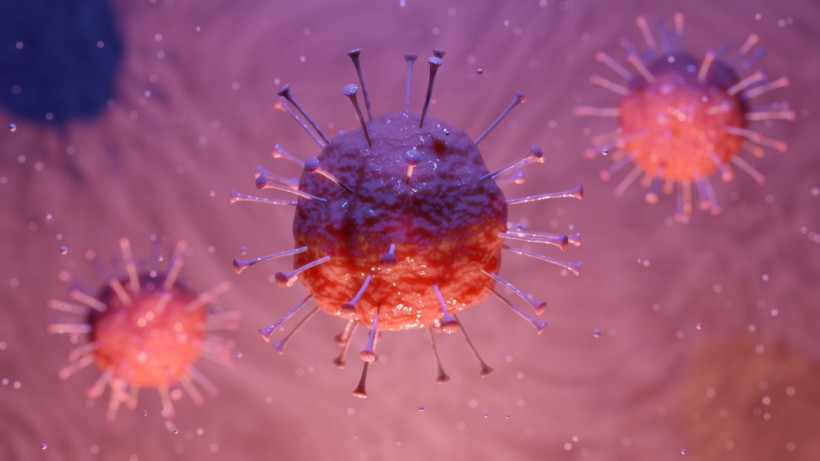An official report by the World Health Organization (WHO) published on Feb 25th, 2020, on WHO's official website indicates global numbers of 80239 confirmed cases of coronavirus (COVID-19) infection and over 2600 confirmed deaths.
So far, China is the leading zone for death tolls from the virus. The rapid spread of COVID-19 that originated in Wuhan, China, internationally, is putting the global populace at a higher risk.
In an article featured on Aljazeera, the coronavirus outbreak is now a global health emergency, as declared by WHO.
Rising fears are pushing for travel sanctions, calling for evacuations, and pushing medical researchers and doctors to the limits as they join hands to contain this deadly virus and push on their research for a vaccine.
What Is Coronavirus?
The World Health Organization (WHO) defines coronaviruses (CoV) as a big virus family that causes a wide variety of diseases like a common cold, Severe Acute Respiratory Syndrome (SARS-CoV), and the Middle East Respiratory Syndrome (MERS-CoV).
Both humans and animals can transmit the virus because it is zoonotic. It circulates in animals and passed on to humans.
Many coronaviruses are circulating among animals that have not infected humans. The coronavirus that recently originated in China is called COVID-19.
Your chances of getting COVID-19 are low if you haven't had close contact with someone ill, traveled to an area where the viruses are spreading, or you are not from a COVID-19 vested area.
Where Did The Coronavirus Come From?
It is not the first time coronavirus is hitting the headlines. In 2002, SARS, a type of coronavirus, originated from China's wet markets of Guangdong, spreading to 29 regions by 2003, with global cases reported at 8,098 and a fatality rate of 9.6%. Bats were the primary cause of SARS coronavirus, although civet cats sold in the Chinese markets were intermediary sources. The recent outbreak in China is one such case.
Many conspiracies are surrounding the origin of coronavirus named COVID-19 by WHO.
To date, the Chinese department of health is still attempting to determine the exact origin of the virus. The information from the health authorities prospects the virus to originate from a Wuhan-based seafood market that the government says partly involved black-market trading activities.
In a study published on Jan 21st, 2020 by SCIENCES CHINA Life Sciences, Chinese researchers have discovered the principle protein necessary for the new China-originated coronavirus infecting humans.
The researchers have identified bats as the natural habitat for the virus. Further findings from the study trace a familiar semblance of the coronavirus genome to the coronavirus HKU9-1 present in the bat family.
Although the Wuhan wet market thought to be the origin of the virus does not sell bats, researchers prospect that bats may have spread the virus to the animals sold in the market. The Wuhan wet market sold both live and dead animals, including birds and fish.
Coronavirus is one of the most common bat diseases that can potentially infect humans. Bats are reservoirs of many other viral infections, including rabies, HIV, and Ebola. Read more to find out about bats and the origins of Coronavirus.
The Rise Of Coronavirus (In Summary)
-
On Dec 31st, 2019, the People's Republic of China (China) alerted the World Health Organization about many upcoming cases of pneumonia.
-
On Jan 7th, 2020, France confirmed the first case of coronavirus infection that was the first one among European nations.
-
Four days later, on Jan 11th, China publicly announced the first death case from coronavirus. On Jan 13th, a report by WHO reported the first coronavirus case outside China in Thailand.
-
The World Health Organization (WHO) declared the coronavirus a global health emergency on Jan 30th and the Philippines recorded the first death outside China.
-
The situation kept worsening as the death of a whistleblower and Chinese doctor Li Wenliang on Feb 7th, and since then, the death toll has persistently risen. On Feb 11th, WHO named the virus COVID-19.
-
Egypt confirmed the first African COVID-19 case on Feb 14th, and more countries are on confirming more coronavirus cases.
Symptoms Of Coronavirus
The WHO identifies common COVID-19 symptoms to include difficulties when breathing, shortness in breath, cough, and fever.
In worse circumstances, the infection can lead to kidney failure, severe acute respiratory syndromes, and pneumonia.
How Long Does It Take For Coronavirus Symptoms To Show Up?
According to the Center for Disease Control and Prevention's observation on coronavirus incubation, it might take between two to fourteen days for the signs to show up after exposure to predisposing factors.
If you see any of the signs, especially after exposure to an environment or to people likely to contain the virus, it is advisable to seek an early medical intervention to prevent the situation from getting worse because the virus can lead to death within a short time.
Standard Prevention Measures Against Coronavirus (COVID-19)
Thorough egg and meat cooking can prevent the spread of infections.
Covering the nose and mouth when sneezing and coughing and washing hands regularly can help prevent the spread of the infection.
Keeping off close contact with anyone with respiratory symptoms like sneezing and coughing can help prevent infections.
The best you can do now is to practice good hygiene.
Is coronavirus curable? Can it be treated?
Can coronavirus be treated? The question as to whether coronavirus can be treated is one of the bothersome inquiries that are intensifying the fear of people contracting the virus or those already infected. Most people who show the symptoms of the coronavirus are afraid to show up themselves for fear of victimization and stigmatization.
Presently, containing the virus involves providing the patient with basic support like breathing support to sustain them until their bodies develop enough immunity to fight the virus.
Goods news! Scientists are actively developing vaccines to address this pandemic. Researchers have already released coronavirus vaccines and are running the tests on animals.
If the tests on animals prove positive, then doctors will move on to vaccine trials on humans.
The only thing to keep in mind about the discovery of the coronavirus vaccine is the timescale is not definite, and the various new approaches to vaccine development call for patience.
Although clinical trials are using anti-viral drugs on coronavirus victims, their ability to guarantee to heal is uncertain.
Parting Thoughts
Anybody can be susceptible to COVID-19 because it may be difficult to expressively identify victims due to the long incubation period of the virus from 2 to 14 days or even more. The most ideal is to take precautions against close contact with potential cases and to seek medical help as soon as any of the coronavirus signs show up.
© 2024 NatureWorldNews.com All rights reserved. Do not reproduce without permission.






